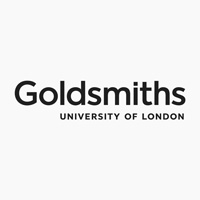fees waived
Anthropology, BA (Hons)
Goldsmiths, University of London, United Kingdom
Subject ranking
UK / QS 2024 9th
UK / QS 2024 16th
UK / Times 2025 19th
Costs
food & rentS$24.1K / year
Entry requirements
Scholarships
Limited quantity
Information
Code
Intakes
Website (External)
Programmes
Information
Duration
2028
Course summary
Why study BA Anthropology at GoldsmithsOn this degree you'll explore anthropology from fresh, contemporary perspectives.
- You'll investigate the world of anthropology from a new angle, drawing on interdisciplinary perspectives to approach issues such as the environment, the state, its politics towards refugees and asylum seekers.
- The BA Anthropology degree offers a challenging and contemporary syllabus. You'll explore key anthropological debates and use them to help you understand contemporary societal and cultural issues.
- We offer a fresher approach to the subject than other universities – from the impact of the environmental crisis and austerity economics, to border politics, the state and racism, you’ll learn much more than just ‘traditional’ anthropology. This is one of the reasons we were ranked top 10 in the UK for anthropology in the QS World University Rankings by Subject in 2023.
- In the first two years, you’ll concentrate on contemporary anthropological approaches and concepts, such as kinship, ritual, critical ecologies, and intersectionality. You'll also learn to analyse these concepts using video, film and written texts, and you’ll get to study about different regions of the world in depth.
- You'll also hone your anthropological skills by choosing from a selection of optional modules, tailoring your degree to your own interests, aspirations and future employability.
- You'll explore links between theoretical issues and ethnographic studies, enabling you to think critically about culture and society in Britain, and around the world.
- Our graduates have gone on to work for the UN, World Bank, NGOs, law companies and corporate social responsibility (CSR) consultancies.
Modules
Year 1 (credit level 4)In your first year, you'll study the following compulsory modules.Being RelatedApproaches to Contemporary Anthropology Anthropological MethodsEthnographic FilmAcademic Skills for AnthropologyAnthropology in LondonAnthropological Ideas TodayYear 2 (credit level 5)In your second year, you'll take five compulsory modules and 45 credits of optional modules.Compulsory modulesCritical Ecologies: black, indigenous and transnational feminist approachesAnthropology of Politics, Inequalities and Social Change Thinking AnthropologicallyThinking Through RaceThe Goldsmiths ElectiveOptional modulesYou'll then take 2 or 3 modules from a list that currently includes:Anthropology and Public PolicyIndigenous Cosmopolitics, Anthropology and Global JusticeAnthropology of ReligionWorking with ImagesAnthropology in Public PracticeThe Goldsmiths ProjectYear 3 (credit level 6)In your third year, you'll complete an individual research project. You can choose either to complete an Individual Project or to complete an extended version.Individual ProjectorExtended Individual ProjectYou will make up the remaining 75-90 credits (depending on your chosen project) from a list of optional modules. Recent examples of optional modules include:Anthropology in Public Practice Psychological Perspectives in Anthropology Anthropology of Health and Medicine Anthropology of Art Anthropology of Development Anthropology and Gender Theory Anthropology of Rights Multimodal Experiments Theorising the Visual Anthropology of Violence Learning from Social Movements Borders and Migration Digital Anthropology Anthropology and the EnvironmentPlease note that due to staff research commitments not all of these modules may be available every year.
Assessment method
You’ll be assessed by a variety of methods, depending on your module choices. These include coursework, examinations, group work and projects.
Year 1 (credit level 4) In your first year, you'll study the following compulsory modules. Being Related Approaches to Contemporary Anthropology Anthropological Methods Ethnographic Film Academic Skills for Anthropology Anthropology in London Anthropological Ideas Today Year 2 (credit level 5) In your second year, you'll take five compulsory modules and 45 credits of optional modules. Compulsory modules Critical Ecologies: black, indigenous and transnational feminist approaches Anthropology of Politics, Inequalities and Social Change Thinking Anthropologically Thinking Through Race The Goldsmiths Elective Optional modules You'll then take 2 or 3 modules from a list that currently includes: Anthropology and Public Policy Indigenous Cosmopolitics, Anthropology and Global Justice Anthropology of Religion Working with Images Anthropology in Public Practice The Goldsmiths Project Year 3 (credit level 6) In your third year, you'll complete an individual research project. You can choose either to complete an Individual Project or to complete an extended version. Individual Project or Extended Individual Project You will make up the remaining 75-90 credits (depending on your chosen project) from a list of optional modules. Recent examples of optional modules include: Anthropology in Public Practice Psychological Perspectives in Anthropology Anthropology of Health and Medicine Anthropology of Art Anthropology of Development Anthropology and Gender Theory Anthropology of Rights Multimodal Experiments Theorising the Visual Anthropology of Violence Learning from Social Movements Borders and Migration Digital Anthropology Anthropology and the Environment Please note that due to staff research commitments not all of these modules may be available every year.
A local representative of Goldsmiths, University of London in Singapore is available online to assist you with enquiries about this course.

